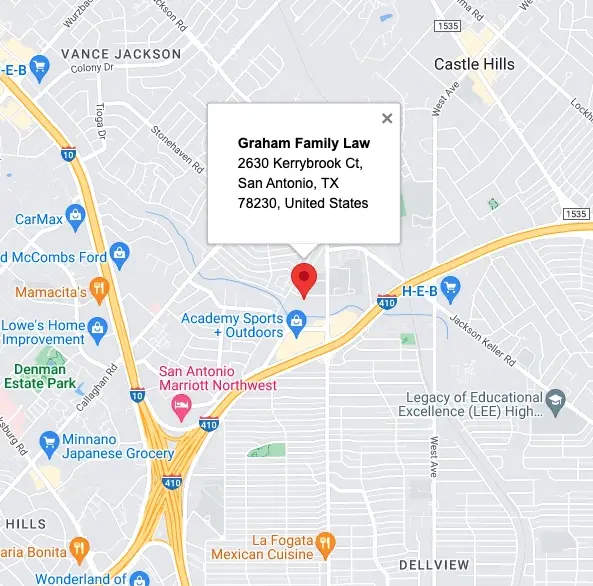Is Texas a “Community Property” state?
Yes, Texas is considered a community property state. Texas Family code section 7.001 states the specifics of property division during a divorce as “In a decree of divorce or annulment, the court shall order a division of the estate of the parties in a manner that the court deems just and right, having due regard for the rights of each party and any children of the marriage.”
In other words, in event of a divorce, community property is typically divided in a manner that is deemed “just and right” by the court, which doesn’t always mean a 50/50 split.
There is a common misconception in the state of Texas that the property either spouse possesses from the date of marriage up until the date of divorce is presumed to be community property. That may include anything ranging from assets and values accumulated in retirement accounts, memorabilia, real estate, vehicles, livestock, home furnishings, and more. We hear clients say, “that’s her RV because it was purchased in her name only.” We go back and ask the client to explain when, and how, the RV was acquired. Texas follows an inception of title rule. This says that if a piece of property is acquired during the marriage, it is presumed to be community property regardless of how it’s titled.
Separate property, such as assets owned before the marriage or received as gifts or inheritances, is not subject to division.
This characterization of property is a common issue that arises in Texas divorces. Many people assume that all community property must be divided equally in a divorce. However, property can have a community, separate, quasi-community, or mixed character distinction, depending on when and how it was acquired. The name in which an asset is titled does not, by itself, determine whether that asset or liability is community or separate property. Property that is obtained throughout the marriage is community property unless it can be proved it is separate.
What are some examples of separate property?
Separate property in Texas generally includes:
- Property owned before marriage: Anything an individual owned before getting married remains their separate property.
- Gifts and inheritances: Items or money received as a gift or inheritance, even if acquired during the marriage.
- Personal injury awards: Compensation received for personal injuries, except for any portion meant to compensate for lost wages during the marriage.
- Property designated as separate by a prenuptial or postnuptial agreement: If you and your spouse have a valid agreement that specifies certain property as separate.
Spouses may be able to change ownership of items from the judges proposed property division through a post-marital agreement if they both agree that the division does not fit their situation.
Are there grey areas of community property?
Yes. Quasi-community property refers to assets that a married couple acquires while living in a non-community property state (i.e. Florida), which are then treated as community property if they move to a community property state. This concept is particularly relevant during events like divorce or the death of a spouse, where the property division rules of the new state apply.
For example, if a couple buys a house while living in a state that doesn’t recognize community property, and then they move to California (a community property state), that house would be considered quasi-community property. This means it would be divided according to California’s community property laws if the couple divorces or if one spouse passes away.
There are nine community property states: Arizona, California, Idaho, Louisiana, Nevada, New Mexico, Texas, Washington, and Wisconsin. In these states, all a married couple’s property is classified as either community or separate property.
Documenting what belongs to whom
Typically, each side of the Divorce will create an “inventory and appraisement” document. The Inventory and Appraisement document is a list of all real and personal property as well as debts and liabilities claimed by each spouse. This list will include separate property, community property, and debts that you and your spouse have.
This list is necessary to help the judge make a just and right division of the marital estate during the divorce.
How can I protect separate property if I think I’m heading for a Divorce?
Protecting your separate property during marriage can be crucial to ensure it remains yours in case of a divorce. Here are some steps you can take:
- Keep detailed records: Maintain clear documentation of any property you owned before the marriage, including receipts, appraisals, and records of any gifts or inheritances received.
- Avoid commingling: Keep your separate property distinct from marital property. For example, use separate bank accounts for any funds that are considered separate property.
- Prenuptial or postnuptial agreements: These legal agreements can specify which assets are considered separate property and how they will be handled in the event of a divorce.
- Title property correctly: Ensure that any property you want to remain separate is titled in your name only.
- Consult an attorney: A family law attorney can provide personalized advice and help you take the necessary legal steps to protect your assets.
If you have any specific concerns or need more detailed advice, consulting with Graham Family Law is a great next step. Connect with us today at 210-308-6448!


